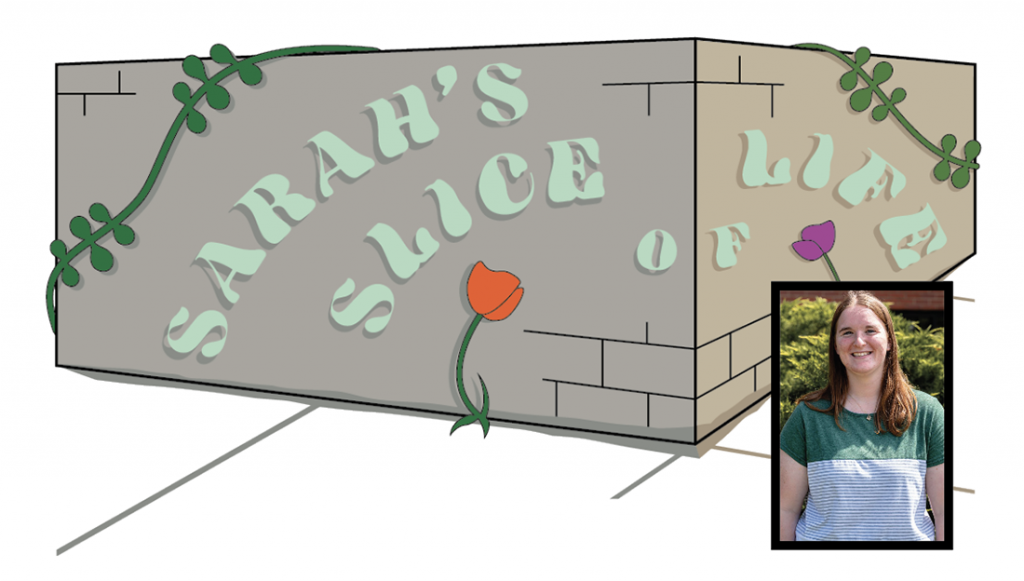Most New Year’s holidays usher in a new beginning amid the backdrop of national countdowns, glittery fireworks and white-hot sparklers. But not last year. For my family and me, counting down to 2022 meant counting down to one of the most devastating snowstorms Virginia had seen in the past decade.
Instead of enjoying the calendar flip to a new year and mulling over our well-intentioned resolutions, my family and I woke up two days after New Year’s Day to white drifts slumped against our windows and trees drooping to the ground under the weight of the snow.
The year of 2022 began as a swirling darkness of white. The unusually severe snowstorm delivered about 16 inches of snow where my family and I live and stranded hundreds of drivers for over 20 hours on a 50-mile stretch of I-95, which was rendered impassable by the storm.
The storm and all those drooping trees knocked out our power quickly, and it stayed off for the next five days. We lit every candle in the house and brushed our teeth with melted snow water. For dinner, we roasted “campfire packets” on our woodstove — chicken, potatoes and onions wrapped in aluminum foil. We charged phones and batteries on a strict rotation in our cars, and we spent the dark evenings listening to music on an emergency radio.
Before the storm that wiped out the ability to shower for five days, I used to love snow. I’m pretty sure every child must love the snow — or at least the possibility of a snow day off from school.
For me, I loved snow because it colored the world in a new way. Sure, sledding down the icy driveway and building snowmen were fun, but snow to me meant tree branches coated in slippery white, a slate-gray sky and the sharp, fresh smell of the cold.
However, as I got older, I discovered not everyone shared my enjoyment, namely one group: adults. Apparently, not everyone thinks ice and snow bring beauty to our landscapes. They seemed to focus on the slippery roads, dangerous commutes, unfortunate delays and yes, power outages.
I didn’t really understand this until that New Year’s snowstorm. The storm ruined my plans and dashed my opportunity to spend a relaxing, normal week at home before heading into the spring semester. Suddenly, the snow and I were disgruntled enemies, facing off on opposite sides for the first time.
And just like those many adults who always rolled their eyes when the forecast called for a few inches of white, I too found myself seeing snow as one thing: a nuisance.
Snow days no longer meant watching the delicate spin of snowflakes outside while holding a mug of hot chocolate by the fire. Instead, snow meant no power, no water and no freedom.
Most of all, it meant a disruption. By its very nature, snow dislocates the steadiness of ordinary life, turning a day into a slush of canceled plans and disappointment.
I didn’t appreciate this disruption last year in early January. I didn’t appreciate it at all as I sat in the dark with no lights, no TV and no internet.
However, looking back now, I don’t exactly remember the disruption. I remember how the radio’s music sounded in the shadows. I remember how the candles danced, how bright the stars were without any light pollution for miles and how the snow sparkled under the moonlight.
For a moment without power, water or freedom, the world was still and uncontrolled by distractions. There was nothing but the shine of the snow and the unexpected wonder found in the chaos the storm had left behind.
It was the disorder wrought by the storm itself that made these moments possible. Author Marie Beynon Ray alludes to this sentiment in her book “The Best Years of Your Life.”
“We have only this moment,” she writes, “sparkling like a star in our hand — and melting like a snowflake.”
The electricity returned eventually, and the snow melted, leaving behind wet ground, snapped tree limbs and rivers of mud. However, that snowstorm reminded me every moment counts, even when heavy, wet snow snaps a power line and sends the world spinning into an unfamiliar motion.
Still, the wonder remains, even — especially — in the chaos.
Tate is the Editor-in-Chief for the Liberty Champion. Follow her on Twitter

